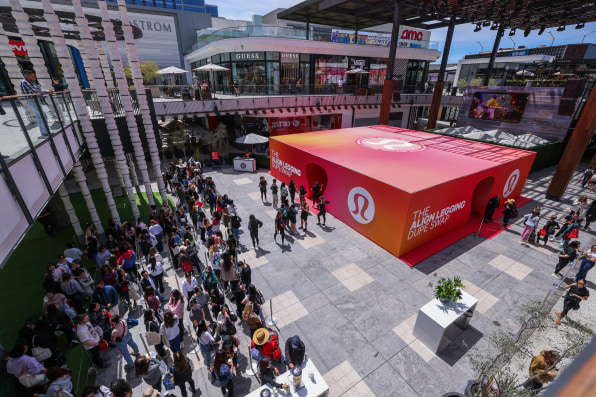Enhance operational efficiency and elevate your customer experience with composable commerce – here’s how.
Today’s consumers want their needs met quickly, personalized to their tastes, and delivered with the utmost convenience. These high expectations have placed businesses under pressure to adapt and cater quickly to their customer’s ever-evolving demands. With a composable commerce solution, ecommerce brands can meet these expectations by choosing the most appropriate commerce components and combining them to suit their unique needs.
Just like how you can mix and match different pieces of a puzzle to make your own unique picture, composable commerce allows businesses to mix and match different parts of an online store. This way, businesses can create a store that fits their specific needs and makes shopping easier for their customers.
In this episode of The Checkout, Gavin Ballard, founder and CEO of Disco Labs, explains how you can optimize your operational efficiencies with composable technology.
For context, Gavin is the leading expert on composable commerce. He’s built technology stacks for billion-dollar companies (including HarperCollins, Four Seasons, and JB HiFi). And he’s learned that high revenues don’t necessarily mean complex operations along the way.
Tune in to hear:
- What a billion-dollar brand’s operations look like
- Why the hype surrounding “headless” outweighs its actual value
- Why startups should integrate technical skills as a vital competency in their teams at the appropriate time.
- How to maximize operational efficiency through pre-sales and crowdfunding
““As anyone running a small business would know, one of the biggest resources you have is time, so if you’re hiring someone who is optimizing for that, that’s gonna be a big win completely.”Gavin Ballard, founder & CEO of Disco Labs
Meet Gavin Ballard
Gavin Ballard is the founder and CEO of Disco Labs, a leading Shopify Plus Partner that focuses on developing applications to meet merchant’s needs.
His background as a software engineer allowed him to work with all sorts of platforms, frameworks and languages. In 2013, he realized that the engineering skills he was applying to his own online store were valuable to others and decided to start Disco Labs.
Gavin is also the author of the first dedicated book to Shopify themes development, The Definitive Guide To Shopify Themes and a number of popular Shopify frameworks like Bootstrap For Shopify.
Connect with Gavin on: LinkedIn | Twitter
About Disco Labs
Disco Labs is a leading agency specialising in custom software for Shopify Plus merchants.
Since launching in 2013, Disco Labs has focused exlusively on building custom software for large Shopify Plus merchants. And they’ve helped some of the world’s largest brands (namely, HarperCollins, Four Seasons, and JB HiFi) streamline their online operations.
And in 2023, Disco Labs launched Submarine. Submarine provides the APIs, tools and documentation that merchants need to build tailored experiences on top of Shopify Plus and drive growth.
Disco Labs focuses on building innovative experiences and solutions for large merchants via the Submarine platform, primarily around subscriptions, presales, tokenization and crowdfunding.
Learn more about Disco Labs on: LinkedIn | Website
The Checkout episode 59 unpacks:
In today’s episode, Gavin breaks down the complexity behind composable commerce and how brands can leverage a flexible tech stack to reinvent the entire customer experience. Here are the highlights:
What billion-dollar brands see as operational success
- After working with household names like Hasbro, JB HiFi, and Fashion Nova, Gavin has concluded that being “big” is not just a pure revenue number
- You can have a relatively simple setup but still earn billions in revenue
- “It doesn’t matter how big your revenue is. The bigger determinant [of growth] for me is how brands can successfully navigate the complexity of the business and all the stuff they have to be doing in the back office.
Hire an in-house “tech star” earlier
- “[This is] one of those things that’s quite difficult for a smaller brand to do. But investing in in-house development is, I’d say, something that brands could look at doing earlier on in the process.”
- Find your unicorn hire. This should be a fully-fledged tech generalist who can set up a Shopify flow, hack together an API connection, or pull data from a spreadsheet.
- Don’t make the classic startup mistake of hiring a freelancer tech person
- When you leverage automation, you can start working on higher-impact initiatives
- “As anyone running a small business knows, one of the biggest resources you have is time. So, if you’re hiring someone who is optimizing for that, that’s gonna be a big win completely.”
The hype surrounding "headless" outweighs its actual value
- A headless setup separates a website’s front and back end to offer consistently compelling customer experiences on any device or sales channel
- “If you want one takeaway from this episode, don’t go headless unless you have an in-house development team or are prepared to stick with an agency to build and maintain it for you for the foreseeable future.”
Simplifying "composable commerce"
- Composable commerce (coined by Gartner in a 2020 report)
- Having a composable approach to your tech stack means you can freely customize the experience for omnichannel shoppers and not be limited to your ecommerce platform’s integrations
- “I think one of the biggest things with the composable commerce trend is that you need to understand your choice of ‘glue.’ How are you stitching things together?”
- To adopt composable commerce, you’ll need to find a powerful and flexible “glue” (like an agency or an in-house team) to stitch together different integrations and solutions
Verify your business model with pre-sales and crowdfunding
- More and more merchants are leveraging pre-sales and crowdfunding to test market demand, generate hype, activate a brand’s community, and optimize inventory levels
- Pre-sale promotes good cash flow management because you can reliably forecast demand
How to use presales as an acquisition model
- Gavin suggests combining presales with co-branding. For instance, Fishwife and Fly by Jing joined forces to create a winning product combination that would help them expand their promotional efforts and audience reach
- Classic men’s clothing Taylor Stitch created its own crowdfunding platform. With it, the brand drives customer engagement and loyalty by getting customers involved in the product creation process
- “[Taylor Stitch] has a very dedicated customer base who are very much advocating and pushing [crowdsourced] campaigns out through social media and referrals…. So, it can be really powerful for acquisition as well.”
How presales flip the cash conversion cycle
- The typical cash conversion cycle starts with businesses purchasing inventory, selling that to customers, and cash flows back through sales
- Preselling flips this cash conversion cycle by allowing brands to sell inventory first, then using that money to finance the corresponding purchase order. That way, the brand doesn’t have to tie up capital in inventory and wait for it to sell
- By leveraging presales, retail brands can precisely plan their inventory and significantly minimize wastage, which is a big trend among brands in the retail world
How Submarine reinvents the DTC customer experience
- Disco Labs launched Submarine as its primary product in early 2023. This platform empowers Shopify Plus merchants to build their own pre-sales and crowdfunding experiences
- So far, Gavin reports that Submarine has been a massive ROI win for merchants with an established customer base and predictable cash conversion cycle
- “We’ve found that a lot of brands want to own the end-to-end experience when it comes to pre-sales and crowdfunding.” That’s why Submarine aims to give brands this ownership
![Your Guide To Improving Multi-Location Inventory Management [7 Strategies]](https://cogsy.com/wp-content/uploads/2023/06/Multi-location-inventory-management-scaled.jpg)

